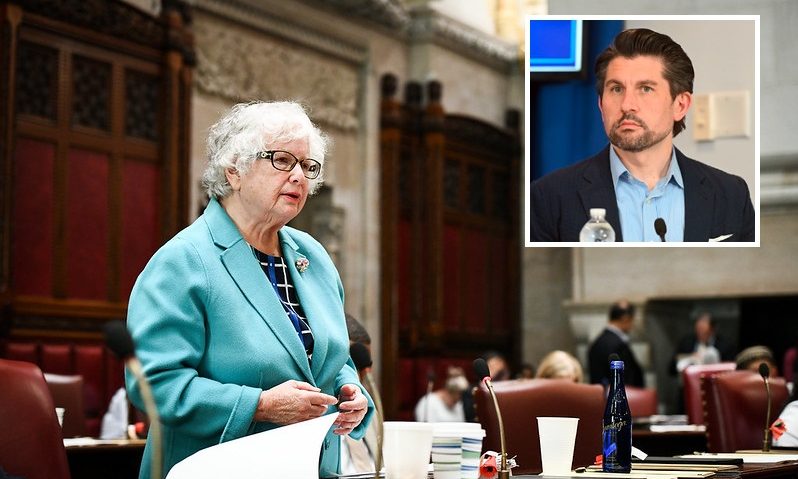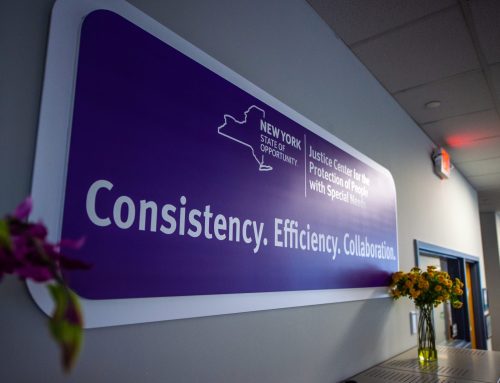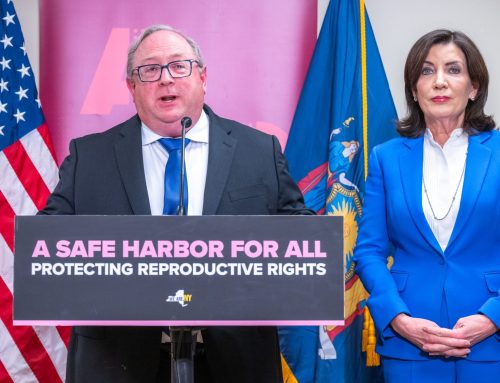Senate Higher Ed chair defers to SUNY trustees on future of Malatras
The call for SUNY Chancellor Jim Malatras to resign or be removed from office from Assembly Higher Education Committee Chair Deborah Glick isn’t being echoed by her counterpart in the state Senate.
Speaking Monday with The Capitol Pressroom, for an interview that will air on Tuesday, Senate Higher Education Committee Chair Toby Stavisky, a Queens Democrat, said the fate of the embattled chancellor is in the hands of the SUNY trustees and she won’t be weighing in on whether he should remain as leader of the state’s public college and universities.
“What the chancellor did was wrong – in his participation in that culture – but he issued a very strong apology,” Stavisky said. “I think this is up to the trustees to make the decision. They selected him and it’s up to them to decide his future.”
Stavisky stressed that she was “not looking to influence the trustees on way or another.” “They were chosen and they should be running (the system),” she added.
On Friday, the SUNY Board of Trustees put out a statement expressing their confidence in Malatras. “He’s acknowledged he made a mistake, taken full responsibility for it, and apologized appropriately. He is fully focused on the critical work of keeping our facilities open and our students and faculty safe through the ongoing pandemic,” reads the statement.
On Monday morning, Glick, a Manhattan Democrat, said that Malatras needed to go for the sake of the future SUNY.
“I do not believe that recent revelations of the Chancellor’s involvement in defaming those who accused the former Governor of sexual harassment can in any way assure students and families that the commitment to a harassment free environment will be honored, especially in instances where a prominent member of the university faces credible charges,” Glick said in a statement.
Earlier this year, Malatras came under fire for his role in the state’s pandemic response and the writing of then-Gov. Andrew Cuomo’s pandemic memoir. Recently released transcripts and exhibits from the state attorney general’s investigation into Cuomo reveal he used foul language toward an executive staff member and that he encouraged the release of private correspondence to raise credibility issues about a woman – the same one – who accused the governor of sexual misconduct.









Social Media